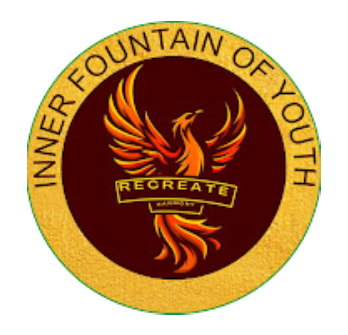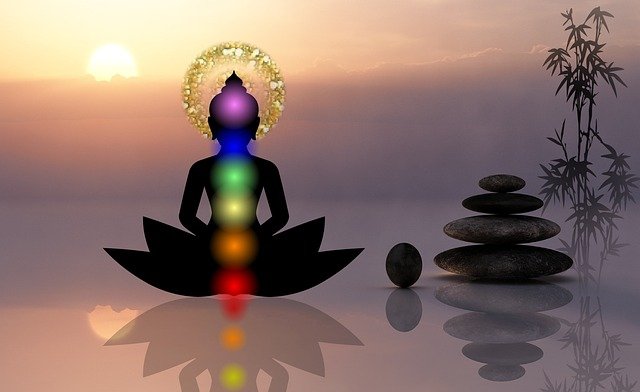Nowadays, people sense technology as a series of distractions that enhance stress. However, it is also used profoundly to target mental peace. Wellness technology is also greatly redefining the self-care approach and providing people with assistive devices that further focus on relaxation and self-care.
This article will discuss how technology has influenced wellness technology, shifting the scope and concept of inner practices.

What Is Wellness Technology?
Wellness technology refers to digital applications to improve mental, emotional, and physical wellness, such as devices and platforms. Cutting edge Inventions such as wearables, meditation apps, and mobile health solutions are all encroaching on the market for wellness. The goal of wellness technology is simple: regardless of location or level of busyness, such devices will help an individual immerse in self-care and relaxation in the most engaging ways.
How Technology Supports Inner Wellness
- Applications For Meditation And Mindfulness
Using tools such as Calm, Headspace, and Insight Timer comes naturally and unconsciously, so it targets a wide range of audiences. The apps help users navigate meditation sessions, breathing techniques, and even relaxation sessions when needed.
- These clever applications ensure that the techniques you are exposed to assist you in achieving what you want. Be it sleep or high clarity, the boundless techniques make desired results achievable; therefore, only a few taps are required.
2. Technologies for wellness
Enable people to be mindful throughout the day, even on busy days.
Wearable gadgets, like smartwatches and fitness bands, can monitor an individual’s sleep pattern, heart rate, and activity levels.
- Wearables help people develop better habits by reminding them to move, breathe, or take a break.
- Modern features of these devices incorporate mindfulness activities that assist users in practicing wellness activities more effectively.
3. Virtual therapy and counseling
Better Help, and Talkspace is an online therapy service that easily connects people to licensed therapists.
These apps use wellness technology to enable interactions with mental health specialists via video calls, messages, or phone calls.
- Virtual therapy eliminates constraints such as time, space, and stigma, making it much easier to turn to mental health services.
4. Technologies to enhance sleep quality
Inner wellness can be significantly enhanced with proper sleep, and wellness technology assists considerably in such situations.
Wearable technology, such as smart mattresses, sleep trackers, and certain phone applications, monitors sleep patterns and offers suggestions to increase sleep quality.
- Applications designed to instruct relaxation and promote better sleep actively build on the better sleep edge.
5. Platforms catering need-based wellness plans
AI is employed by platforms such as Noom and MyFitnessPal to generate health and wellness strategies suited for the individual.
Nutrition, fitness, and mental health are integrated into this software, which sets a target for the user to attain and then gives recommendations on how to get there.
- Making inner goodness practices seem more appealing by personalizing them helps with wellness regarding technology.
Pros of Using Wellness Technology
- Accessibility
Thanks to wellness technology, practices such as meditation or therapy can be offered without the restrictions of being in a specific location or being overly expensive. Anyone with a smartphone or any device can use these wellness tools anytime.
- Personalization
Depending on the individual, specific wellness measures, such as a personalized workout regime or a meditative routine, can be offered, allowing users to select what best suits them.
- Consistency
An app as simple as the one installed on your phone can greatly determine how timid and passive one is in ensuring that their wellness interventions are consistently done with devices reminding them or tracking their use. One could get daily reminders to do short breathing or mindfulness sessions.
- Measurable Progress
Such tools usually have a feature that allows the individual to track their progression over a specific period, making it easier for that user to want to keep practicing the wellness measures in question.
- Community Support
Certain social aspects are usually incorporated into some wellness working apps and platforms allowing people to find like-minded people who could help each other out. Virtual communities make inner wellness practices a little more appealing and ensure that one won’t feel alone while doing those practices.
Practical Ways to Use Wellness Technology
- Start Your Day with A Meditation App
How to be in a good mood with a range that suits each tone: There is an app that helps people meditate, which can help put one in a better mood.
Mindfulness can relieve stress in just a mere five minutes while improving your level of attention.
2. Recognize the Sleeping Habits You Have
Monitor your sleep patterns to improve your sleeping experience. Based on the data, change your way of life to feel light and renewed during the day.
3. Book Therapy Sessions Online
When dealing with a lot of pressure and emotions, it might be helpful to register for an online therapy service. This can give you the ability to plan techniques during treatments.
4. Use Technology to Your Advantage to Be More Mindful
Wear a fitness tracker to monitor your activities, breathing, and heart rate. When at work, screen fitness trackers can help you determine the amount of time you need to take breaks to be more focused.
5. Try Apps That Allow You to Journal
These days, more and more people are becoming aware of themselves, which is leading to journaling apps that help them understand their thoughts through prompts to journal.
Tech for Self-Care: Why it is Important
Wellness technology incorporates self-care routines with modern-day activities. These routines are not easy to incorporate for people who work all the time, but these tools can help solve the problem quickly.
Wellness technology complements meditation and mindfulness, creating a healthy atmosphere and strengthening emotional health.
Conclusion
Inner wellness is necessary to live a well-balanced life, and wellness technology has made it even easier to ensure that you take care of yourself often.
Thanks to technological advances, it is now much easier for individuals to get fully involved in the realm of mindfulness via stress and wellness goal management tools such as various meditation apps and wearable gadgets.
Indeed, technology can facilitate inner peace in many different ways. Start using wellness technology and make a truly remarkable difference in how you care for yourself!


